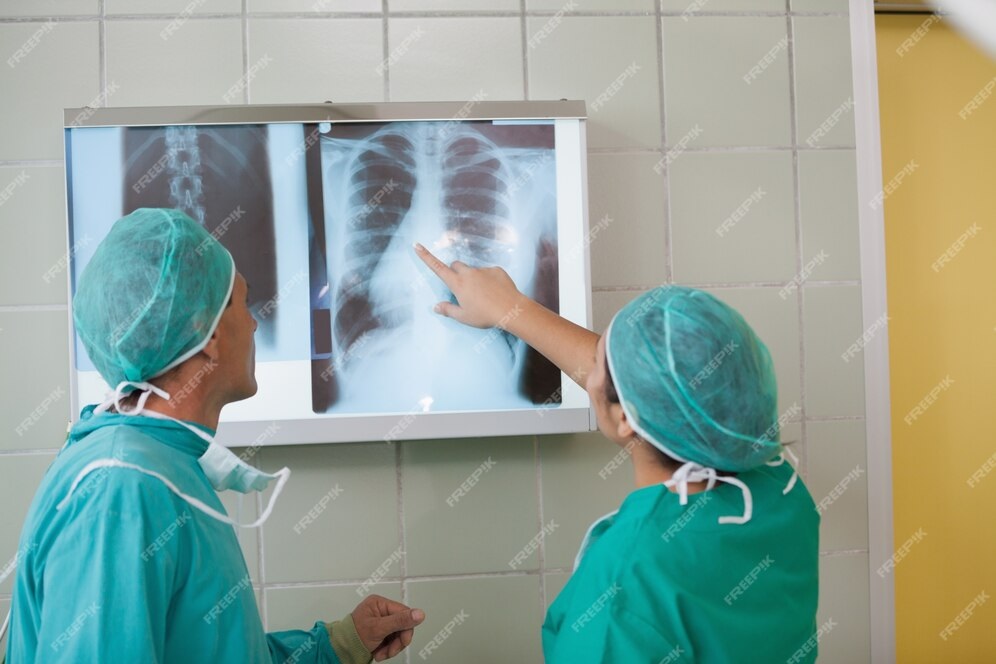Thoracic surgery, a specialized field that focuses on the surgical treatment of conditions affecting the chest, has made significant advancements in recent years. Mumbai, a bustling city in India, is home to several renowned thoracic surgery centers and skilled thoracic surgeons who provide comprehensive care for a wide range of thoracic conditions. If you or a loved one is facing the prospect of thoracic surgery in Mumbai, it’s essential to understand what to expect during your journey to recovery.
Thoracic Surgery Centers in Mumbai
Mumbai boasts several top-tier thoracic surgery centres that offer state-of-the-art facilities and cutting-edge treatments. These centres, such as the dedicated Center for Lung Surgery at Dr. Bhanushali Hospital, Thane are equipped with advanced technologies like video-assisted thoracic surgery (VATS) and Uniportal VATS. These minimally invasive techniques often result in less blood loss, faster recovery, and earlier discharge from the hospital compared to traditional open surgeries.
Thoracic Surgeons in Mumbai
Mumbai is home to a pool of highly skilled and experienced thoracic surgeons who are dedicated to providing exceptional patient care. These surgeons, such as those at the Lilavati Hospital, have extensive training and expertise in treating a wide range of thoracic conditions, including lung cancer, esophageal cancer, and benign chest diseases. They work closely with a multidisciplinary team of specialists, including pulmonologists, oncologists, and radiologists, to ensure a comprehensive and personalised approach to patient care.
What to Expect During Your Recovery
Thoracic surgery can be a significant undertaking, but with proper care and support, most patients can expect a smooth recovery. After the surgery, you will be closely monitored in the hospital’s recovery rooms or intensive care unit (ICU), where a dedicated team of nurses and healthcare professionals will ensure your comfort and well-being.
As you progress through your recovery, your thoracic surgeon in Mumbai will provide you with specific instructions and guidelines to follow. This may include:
- Pain management: Your surgeon will prescribe pain medication to help alleviate discomfort and ensure your comfort during the recovery process.
- Breathing exercises: You may be encouraged to perform breathing exercises, such as deep breathing and coughing, to help prevent complications like pneumonia and promote lung function.
- Mobility: Your healthcare team will encourage you to gradually increase your mobility, starting with short walks around the hospital and gradually progressing to more strenuous activities as you heal.
- Follow-up appointments: Your thoracic surgeon will schedule regular follow-up appointments to monitor your progress, assess your recovery, and address any concerns or complications that may arise.
Conclusion
Thoracic surgery centres at Mumbai hospitals offer patients access to world-class facilities, cutting-edge treatments, and highly skilled surgeons. By understanding what to expect during your recovery journey, you can take an active role in your healing process and work closely with your healthcare team to achieve the best possible outcome. With proper care and support, most patients can look forward to a successful recovery and a return to their normal activities.
FAQs
If I require chest surgery, how can I tell?
You may need thoracic surgery if you have been diagnosed with a condition that requires surgical intervention, such as tuberculosis, lung cancer, thymoma, pleural effusion, empyema, pneumothorax or a chest injury. Your healthcare provider will determine if surgery is the best treatment option for your specific condition.
What can I expect during the pre-operative phase?
During the pre-operative phase, you will undergo various tests and evaluations to assess your overall health and prepare for surgery. These may include blood tests, imaging scans, pulmonary function tests, and consultations with the surgical team.
What happens on the day of the surgery?
You will be admitted to the hospital one day prior and made ready for surgery on the day of the procedure. This may involve changing into a hospital gown, starting an intravenous line, and meeting with the anesthesiologist. Once you are ready, you will be taken to the operating room for the surgery.
How long does thoracic surgery usually take?
The duration of thoracic surgery can vary depending on the type of procedure being performed and individual factors. Some surgeries may take only a couple of hours, while others may take longer to complete.
What types of anaesthesia are used for thoracic surgery?
Thoracic surgery is typically performed under general anaesthesia, which means you will be unconscious during the procedure. In some cases, regional anaesthesia or epidural anaesthesia may be used to provide pain relief after surgery. In high risk patients or patients unfit for general anaesthesia, some of these surgeries are performed under plain thoracic epidural anaesthesia

